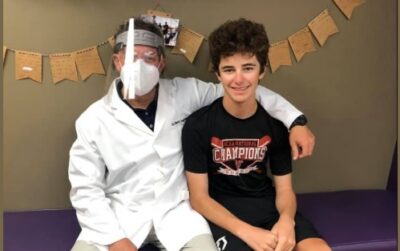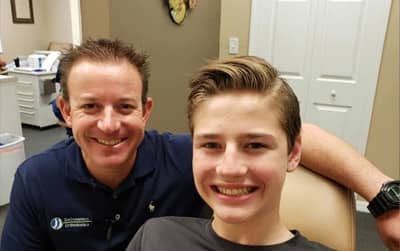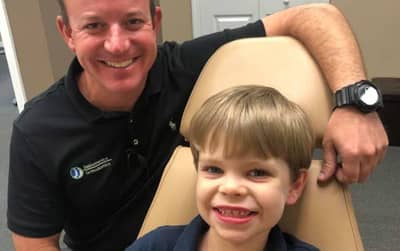It’s not news that dental anxiety is a thing. Some people may have had a difficult time at the dentist in their past, which makes it even more tricky for them to want to go back, even to a different provider.
Better dentists do their best to help anxious patients be as comfortable as possible, everything from explaining what’s happening to light sedation. Eventually, patients can start to replace those scary memories with more pleasant ones.
Orthodontists see different versions of dental anxiety and we also do our best to help our patients, no matter their age.
We admit that what we can do can be scary at first to children, teens, and even adults getting braces or other treatments. The idea of people putting pieces of metal and other objects into a patient’s mouth can be frightening, along with trying to focus on the new restrictions about what to eat and drink. Once you start thinking of all the unknowns, it’s hard to stop.
Because we’ve been helping patients with their orthodontic needs for years, we’ve learned useful methods to let people know what’s happening and why they shouldn’t feel anxious.
- Remind them of the end goal. By focusing on what’s at the end of the process – starting with straight teeth and a great smile – it’s something positive to look forward to.
- Tell them they’re not alone. If someone feels like they’re the only person who has felt uncertain about the whole “getting braces” part, we let them know how many people we’ve helped, how many people have been happy, and how many were a little scared, especially at first. We have plenty of past reviews/testimonials – maybe even from people they know.
- We explain what we do. This includes talking about the different steps involved. We’ll show the equipment we use and introduce patients to our staff. We’ll discuss some of the new restrictions, such as food they can’t eat, but offer some substitutions.
- We listen. Any questions are welcome especially for people new to this (or their parents).
With braces or other orthodontic treatments, it’s also important to keep regular appointments and let us know if there are concerns or emergencies between appointments. We make sure any interactions are positive and courteous, whether it’s a phone call or office visit. Please call us with questions or for a consultation.


















